
Bennett Foddy is a New York-based designer who is directly responsible for games like QWOP, CLOP, Super Pole Riders, and 2017's Getting Over It with Bennett Foddy. When he's not creating games that make people scream in anguish, he works as an Assistant Arts Professor in game design at NYU's Game Center. He's @bfod on Twitter.
My Summer Car

For me one of the most interesting trends in PC gaming right now is "anti-design", meaning games that resist or totally ignore the popular orthodoxies of game design. We all know well-designed games need to be easy to understand and play, and that they should explain themselves clearly, and always be fair and reliable. Well, My Summer Car is not like that. It dumps you in an unfamiliar country and time period with no explanation. Then asks you to do something you have no idea how to do, inside an extremely detailed autobiographical simulation. It’s crude and nonsensical and almost impossible, which feels extremely fresh in an era of perfectly polished, perfectly playable games. A massive breath of fresh air.
Human: Fall Flat
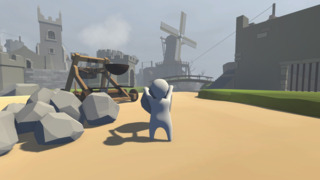
I’ve been playing a lot of co-op games this year, and this one took me by surprise. It’s basically "Gang Beasts as a puzzle game", and the puzzles start pretty basic but get very interesting quickly. The game’s reliance on physics leads you into some forms of cooperation that you rarely see in other games, where you suspect that you might just be able to boost your friend over that wall or dangle a stick to pull them up with. You’re never quite sure whether your solution to a puzzle is the one intended by the designers, so it feels much freer and less on-rails than most puzzle games.
Fidel: Dungeon Rescue
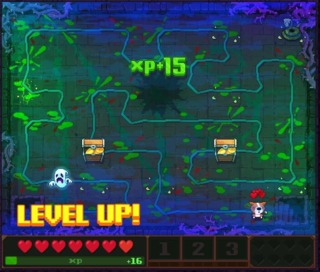
As an indie game designer you inevitably spend most of your gaming time playing games by your friends. But that’s not going to stop me from putting those games on my list! Fidel is the perfect laptop game: a turn-based dungeon puzzler where each run is bite-sized but still mechanically very deep. I found myself returning to it when I didn’t have time or energy to play a big game, which is basically all of the time. It’s like: what if Minesweeper was a really cool, original, good-looking game about a dog?
Tormentor x Punisher
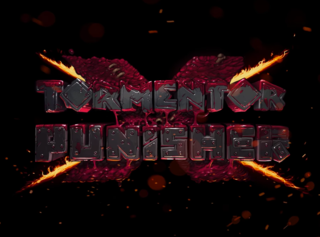
I have to admit, when I first booted up Tormentor x Punisher, the ridiculously over-the-top, '90s-style death-metal ultraviolence put me off. But this is one of the most criminally overlooked games of the year. Like Devil Daggers, it’s a single-arena shooter which focuses on mechanics and replay rather than content. The game is designed to get you playing in a certain rhythmic, hypnotic way, constantly circling enemies and closing in on them and pulling back to the pop-pop-pop of your machine gun. It is extremely good at producing a flow state, and it made me hurt my button thumb worse than any recent game… other than Thumper, which actually gave me an injury in my hand.
Witchball
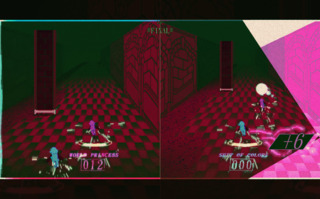
This game was commissioned for NYU’s 2016 No Quarter event, which in previous years gave birth to games like Nidhogg and Hokra, but it’s just finally getting a commercial release this month. It’s a two-player mashup of Outrun and Pong with a unique, surreal look and feel, so you’re racing and playing tennis at the same time, and it’s a really great grudge-match game. It’s what quidditch would be, if the witches in Harry Potter were the cool kind of witch. I’m a massive fan of Stephen Clark’s work, he has such a unique eye, and this is his most accessible game.
Universal Paperclips

This is maybe a bit bogus because I have a minor programming credit on this game, but I’m still putting it on the list (again: indie game designers mostly play their friends’ games! There’s no point pretending otherwise). About once every two years I really lose myself to an incremental game, also known as a "clicker": candy box, cookie clicker, kittens. In most of them there comes a point where it’s clear they ran out of ways to increment the game further, and started to just add nonsense to the game. This is the first one I’ve played that was totally coherent, in the sense that every incremental part made sense as part of the game’s story and world, and that makes for an amazing experience. All the time you’re watching the numbers go up, you’re ruminating on the philosophical inspiration for the game: philosopher Nick Bostrom’s hypothesis about the "paperclip maximizer", a perfect AI that is programmed to turn wire into paperclips. Between Paperclips and Everything, 2017 gave us history's first great philosophy games.
The Legend of Zelda: Breath of the Wild
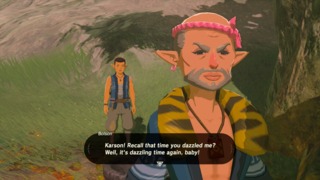
I guess everyone is going to put this on their list, but it would be dishonest of me to leave it off. Making a Zelda game in 2017, with all its history and its huge fanbase, must feel like trying to steer the world’s heaviest, slowest boat. We all know by now what a Zelda game is. And yet they had the incredible courage to shift it into almost a completely different genre, from an action puzzle game to an immersive sim. After Skyward Sword, I didn’t think I could ever be excited to play another Zelda game, but this game proved me totally wrong. As a designer of physics games myself, I’m also floored by their mastery of the physics engine, which allows you to do almost anything you can think of while not creating glitches or breaking the systems.
Rain World

I kind of bounced off Rain World when I first played it, after getting stuck a few times. The thing that brought me back was I was talking to a friend who had played about the same amount of time, and we realized that we had discovered almost completely non-overlapping sets of knowledge about the game. It’s unfriendly, confusing and unforgiving, again almost anti-design. But it’s also just incredibly detailed and deep in a way that no other Metroidvania game is (with the exception, perhaps, of Symphony of the Night). It feels alien, like a game from another planet, much like Another World and Captain Blood did in the 90s. And it’s probably the best-looking pixel art game of all time.
Everything

I was at the Experimental Gameplay Session at the Game Developer Conference in 2016 when I first saw David O’Reilly demo Everything. I knew the premise for the game, of course--it’s a simulation of the entire universe! I was sure that David had simply succumbed to the temptation to make a universe simulator that has hooked so many great designers over the years: on Frontier, on Spore, on No Man’s Sky. But the second I saw him move a bear on the screen, tumbling end-over-end like it was being played with by an invisible child, I realized he was doing something much more subtle and unexpected with the game. It’s not a simulation of the universe, instead it’s a game about the universe, and it explores that idea with visual poetry and a level of conceptual subtlety that is really very unusual in games. It brought me to tears.
Dunk Lords
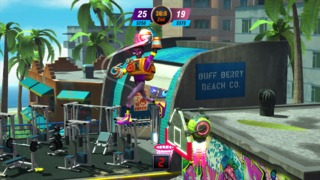
It seems kind of terrible to pick a game that’s not going to be released for a while, but if I look at my Steam stats it shows I’ve played more of Andy Hull’s forthcoming Dunk Lords than any other game this year. The hook of the game is easy to explain: it’s NBA Jam, except the players all have unique superpowers, and you can buy crazy equipment after each period. After more than 100 hours of play, I can’t pretend I’m beta testing it anymore, I’m just playing it for pure pleasure. Andy takes Dunk Lords to festivals like PAX--make sure you get to try it if you get a chance.